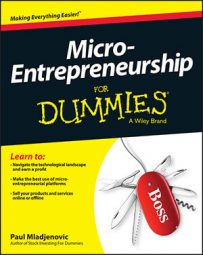If your micro-entrepreneurial business is a business model that can be copied and sold, consider franchising or creating dealerships. You can grow your micro-entrepreneurial business and make more money going this route in many ways.
Franchise a micro-entrepreneurial business
A franchise (or franchise dealership) is a type of license that someone (the franchiser) gives someone access to a business’s proprietary processes, knowledge, and trademarks so the franchisee can sell products and services under the business name. In this arrangement, you would be the franchiser that grants these rights.
In the franchise, the franchiser exerts a great deal of control in how the business is run. Everything is virtually run according to the franchiser, ranging from the type of accounting system to uniforms, suppliers, advertising, and so on.
In the same way, many other entrepreneurs will take a single-location business and grow it to a multiple-location business. A micro-entrepreneur can go big by utilizing the franchising model. When you create a successful methodology for running a business, other entrepreneurs pay you (probably a large amount) to be a franchisee.
To find out more about franchising, head to these resources:
Independent micro-entrepreneurial dealerships and service marks
An independent dealership (also called a distributorship) is a different animal. This type of arrangement is typical in the automotive retail industry. The biggest difference between a dealership and a franchise is the level of control involved by the franchiser (or company that sold the dealership). In a dealership, the entrepreneur that bought the dealership maintains a lot of independence and personal control.
In the automotive industry, for example, you may have a Ford dealership called Bob’s Fords. The Ford Motor Company doesn’t exert any control over how the business is run except for how the dealership represents their cars. The Ford doesn’t mandate that the dealer has to wear uniforms or adhere to a particular methodology.
Another good example is when a business service marks (SM) its model. A service mark is similar to a trademark, but it applies to a service and not a product. Say that you do a successful business that is in seminars and training.
You can brand your business and sell it to other entrepreneurs. They pay you to do this particular program your way. The entrepreneur that paid to be able to do your program your way is really only buying permission to do your program and the rules and regulations only apply to that particular program and nothing further.
For more information on service marks, go to the US Patent and Trademark Office site.

